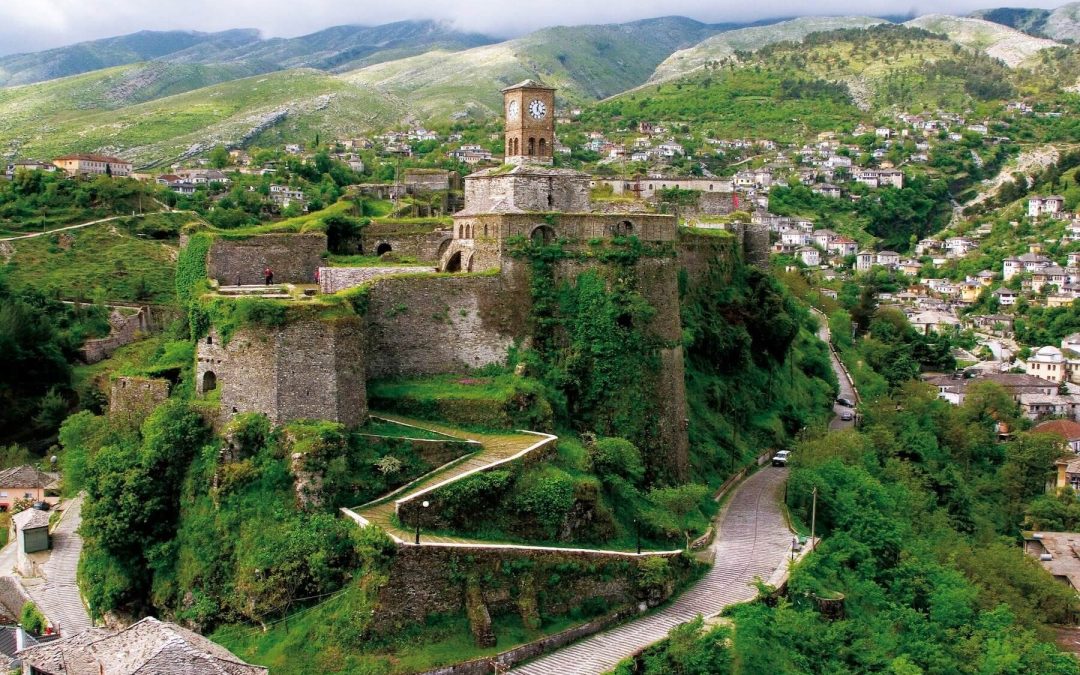Welcome to Min-On’s Music Journey! Today, the Min-On Concert Association and the Embassy of the Republic of Albania in Japan welcome you to Albania, located in the southwestern part of the Balkan Peninsula.
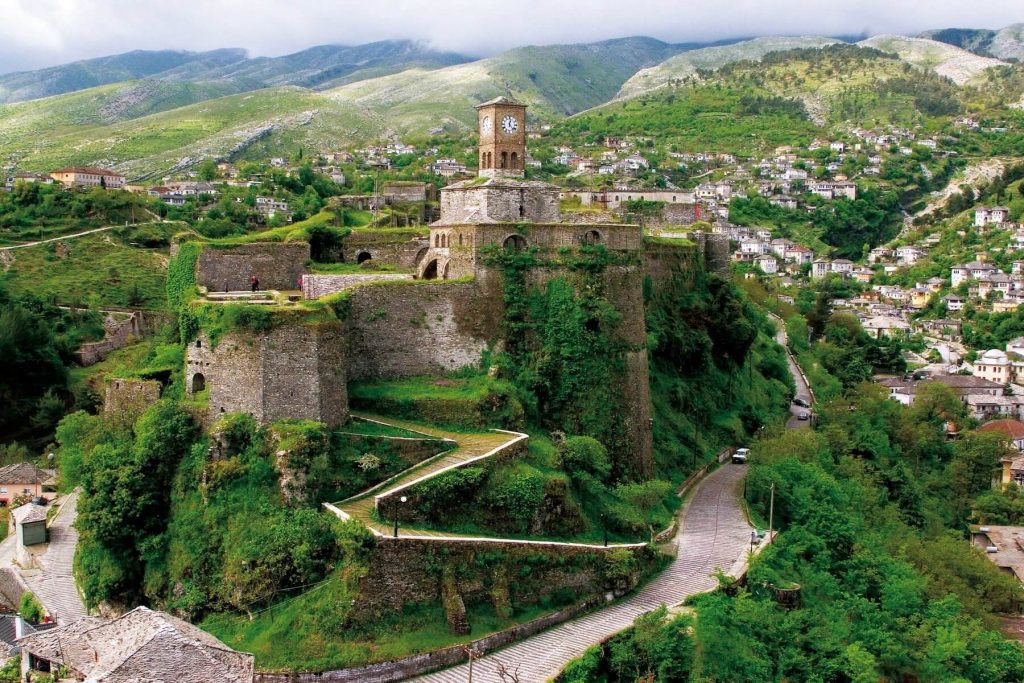
| Travel guide for Albania:
・Tour the best spots in the capital of Tirana |
Albania is a country bordering the Adriatic Sea filled with gorgeous natural landscapes and rich historic atmosphere. Thanks to its comfortable Mediterranean climate, agriculture has flourished here since ancient times. The sight of the tranquil Albanian countryside stretching out across the horizon will help soothe the fatigue of any journey.
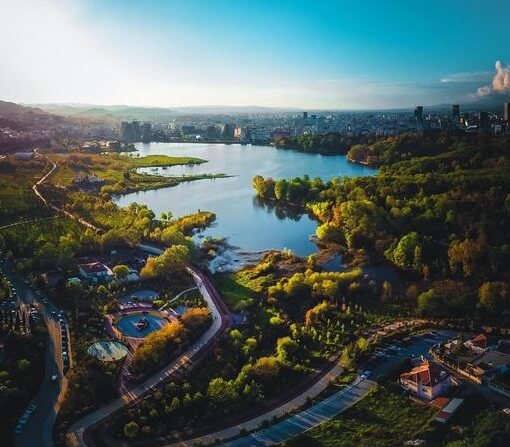
The capital of Tirana, the center of Albanian culture
The capital of Tirana lies in the center of Albania, making it the perfect home base for traveling around the country. Tirana has served as the political center of the country since Albania declared independence in 1920. The national museum and national art gallery are both located here, also making it the center of Albanian culture.
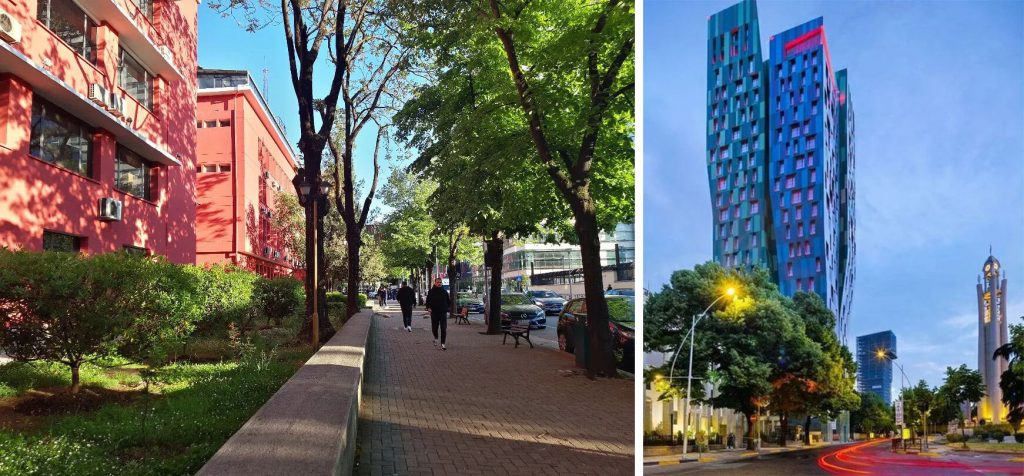
When you visit Tirana, the first place you should go is Skanderbeg Square, named in honor of the Albanian Hero Gjergj Kastrioti Skenderbeu. It’s the central square of the city, surrounded with great locations to visit.
One location certainly worth seeing is the Xhamia Et’hem Bey Mosque, known for its exquisite interior ornamentation. As over half of Albania’s population is Muslim, the mosque serves as a sacred place that the Albanian people have watched over since it was completed in 1823.
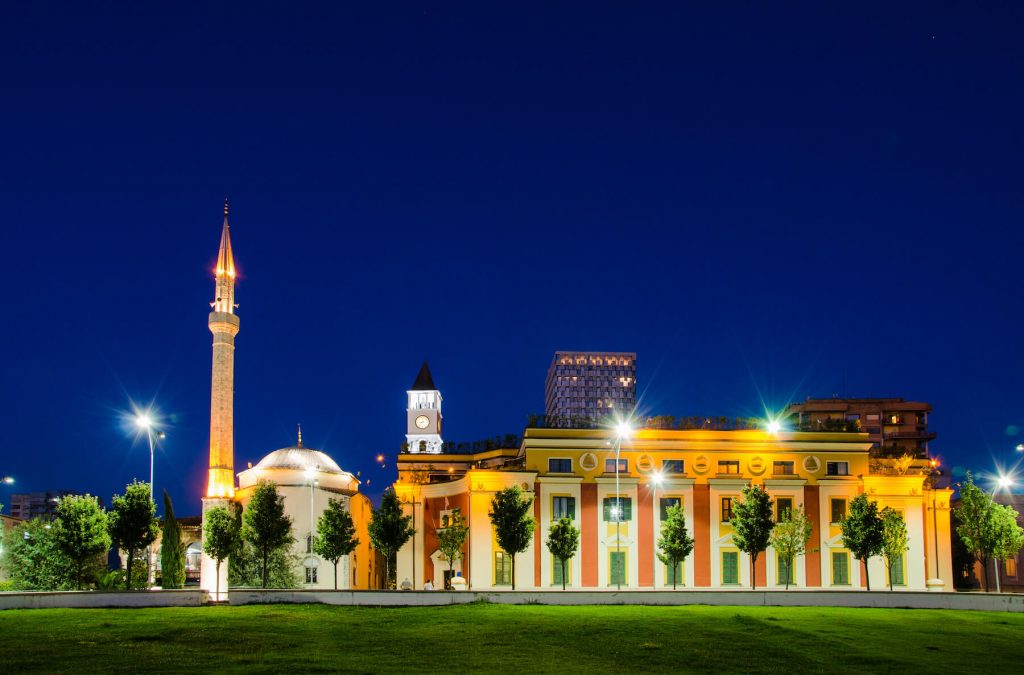
Albania’s natural environment and World Heritage Sites
Albania is sometimes called the most unexplored region of Europe, and there are many hidden gems within its borders. First, let’s set out from the capital of Tirana and head to the port town of Durrës in the west.
Durrës, Albania’s largest port
Durrës is a port town on the Adriatic Sea, and it’s also Albania’s top beach resort area. The sight of the setting sun over the sea in Durrës, where the sea lies to the west, is truly enchanting.
Hotels and restaurants are scattered along the coastline, and a meal or a night spent here is sure to be an unforgettable experience.
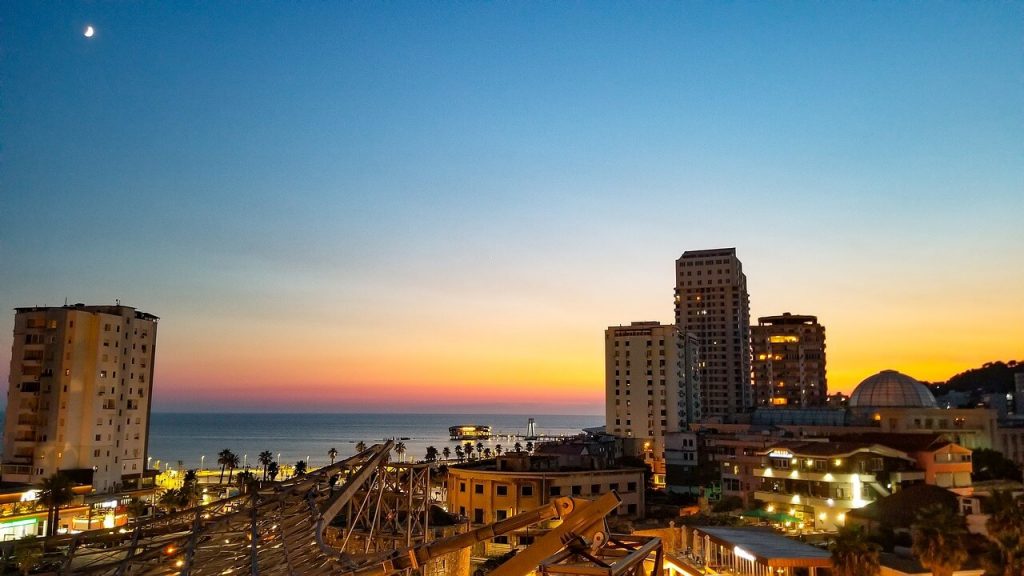
Sarandë, a popular destination
Heading about 270 km southwest of Tirana brings us to the port town of Sarandë. Here, the sea is warm enough to swim in even in the fall, and its crystal clear, aquamarine waters give Sarandë a unique charm on par with Durrës.
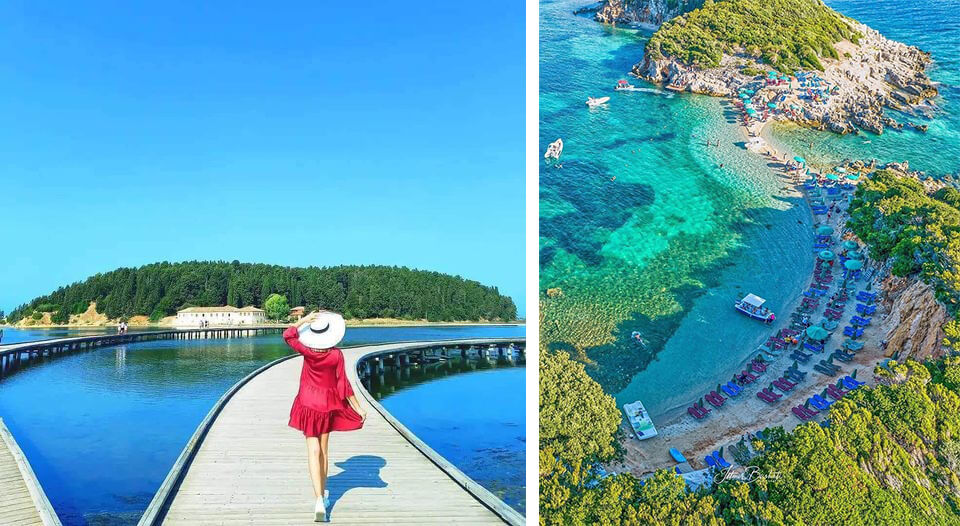
The many alluring locations near Sarandë also make it a popular place to visit. Incredible sights perfect for a day trip from Sarandë include the Blue Eye, a spring known for its crystal-clear blue water, the Butrint Ruins, a World Heritage Site with ruins dating back to the Greco-Roman period, and more.
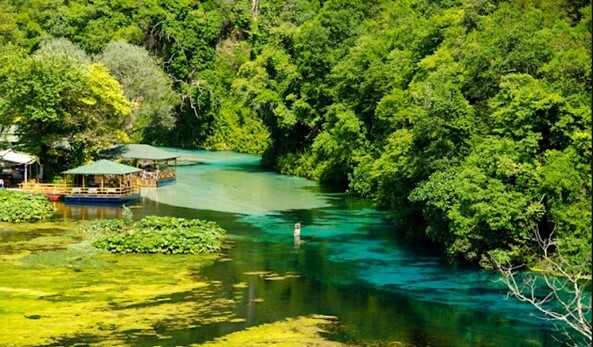
Historic Centres of Berat and Gjirokastra
The historic city of Berat is in the central-southern area of Albania, while Gjirokastra lies in the south. UNESCO has registered both as World Heritage Sites in recognition of the historic value of the rare Ottoman Empire architecture still visible today.
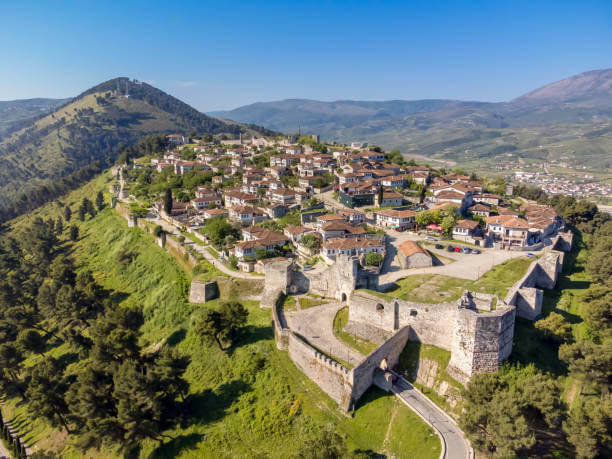
Berat
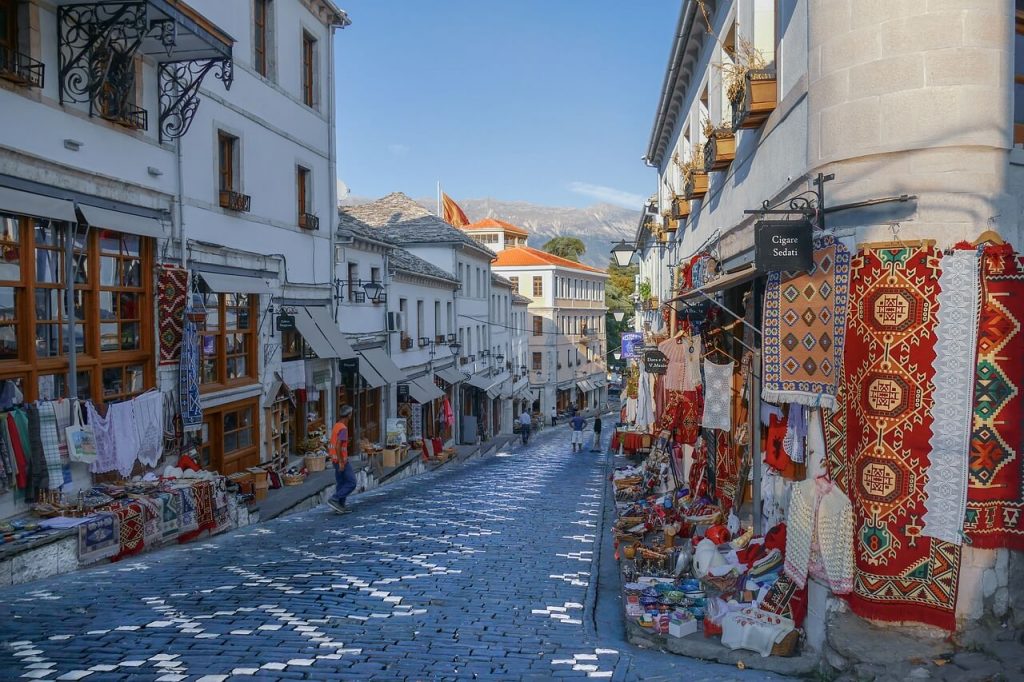 Gjirokastra
Gjirokastra
Albanian cuisine
Albania is blessed with bountiful harvests of crisp, juicy vegetables and bountiful seafood, and its delicious cuisine has developed as a blend of Italian, Mediterranean and Ottoman culinary cultures.
Fërgesë
Fërgesë stew is thought to originate from the capital of Tirana. It’s a staple breakfast dish that consists of green peppers, onions, tomatoes, cheese, basil, butter and wheat flour baked in an earthenware pot.
Tavë kosi
Tavë kosi is a one-pan dish of seasoned lamb and rice topped with sour goat or sheep’s milk. Modern tavë kosi is commonly made with a sauce made from eggs and yogurt seasoned with lemon instead of sour milk, and the unique, invigorating acidity pairs well with the lamb.
Qifqi
Qifqi is a regional specialty from Gjirokastra consisting of a fried mixture of rice, herbs and cheese. In Albania, where most rice dishes are closer to risottos, the crispy texture of qifqi is a rare delight.
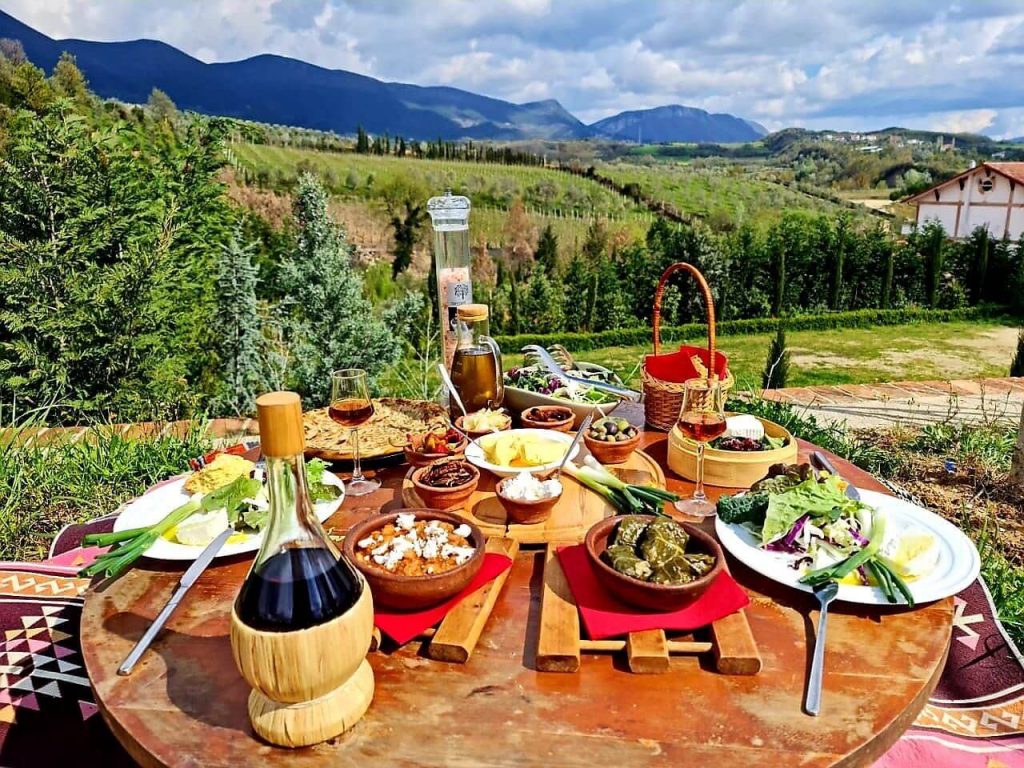
The music culture of Albania
Albanian music culture has roots tracing all the way back to ancient Ilirian, while also taking on the influence of cultures including the ancient Roman, Eastern Roman and Ottoman Empires.
Each region of Albania has unique musical traditions. For example, the northern and southern regions have different characteristics. Most Northern Albanian music, like most religious songs and folk songs, is monophonous (single melody).
In contrast, Southern Albanian music is polyphonous (multiple melodies). In polyphonous music, multiple melodies are featured with equal prominence. This is different from both music with a primary melody and music that features a main melody with accompaniment.

Today, we hope you enjoy our introduction to Albanian iso-polyphony, which is recognized as Intangible Cultural Heritage. Please enjoy the mystical sound created by the interweaving of multiple different melodies.
Albanian musicians recommended by the Embassy of the Republic of Albania in Japan
In closing, we would like to introduce Albanian musicians recommended by the Embassy of the Republic of Albania in Japan.
- Valsi i Lumturise-Vaçe Zela
- Me the te dua-Parashqevi Simaku
- Kolazhi Vol.1-Eli Fara
- Kolazh veriu-Irma Libohova
- FUSTANI-Aurela Gaçe
- La traviata – Addio, del passato-Ermonela Jaho
- O ZOT-Saimir Pirgu
- The Diva Dance – The Fifth Element-Inva Mula
- New Rules-Dua Lipa
- Plak me merak-Frederik Ndoci
- Pyes lotin-Elsa Lila
- Telat e Zemres-Era Rusi
- Paganini: Violin Concerto No 2 in B minor Op 7-Tedi Papavrami
What did you think of your music journey to Albania? There are still many more places to go! Please look forward to our next destination.
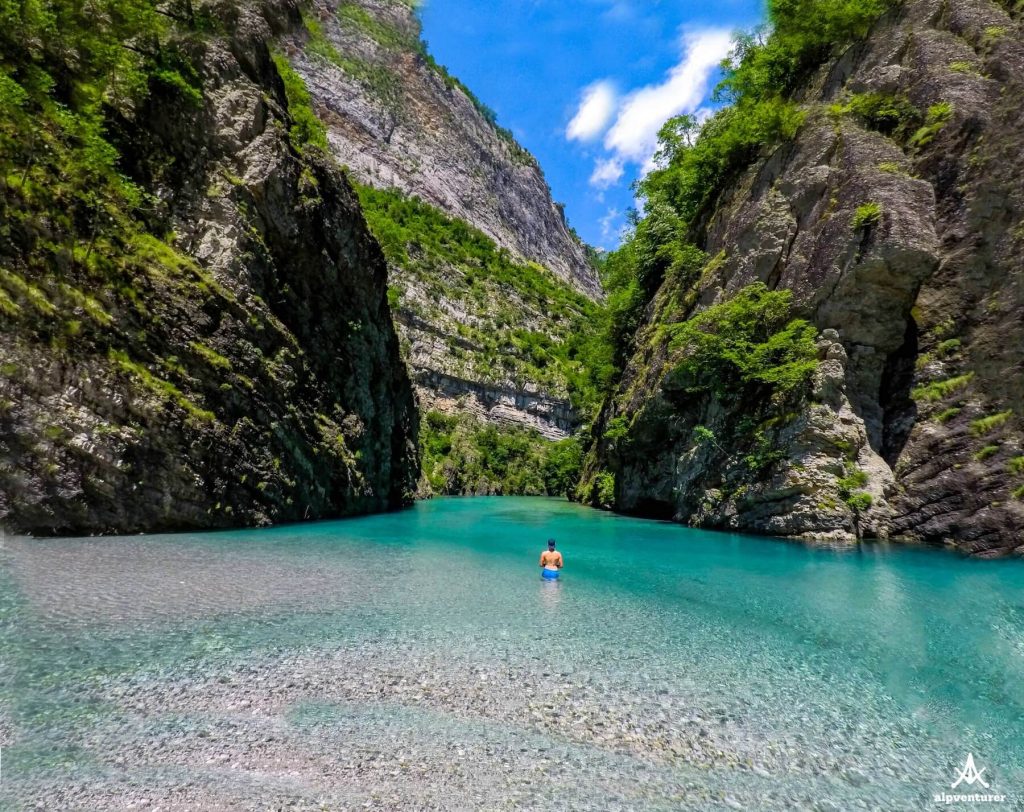
(Produced in collaboration with the Embassy of the Republic of Albania in Japan, who also provided photos.)
Min-On Concert Association
-Music Binds Our Hearts-


